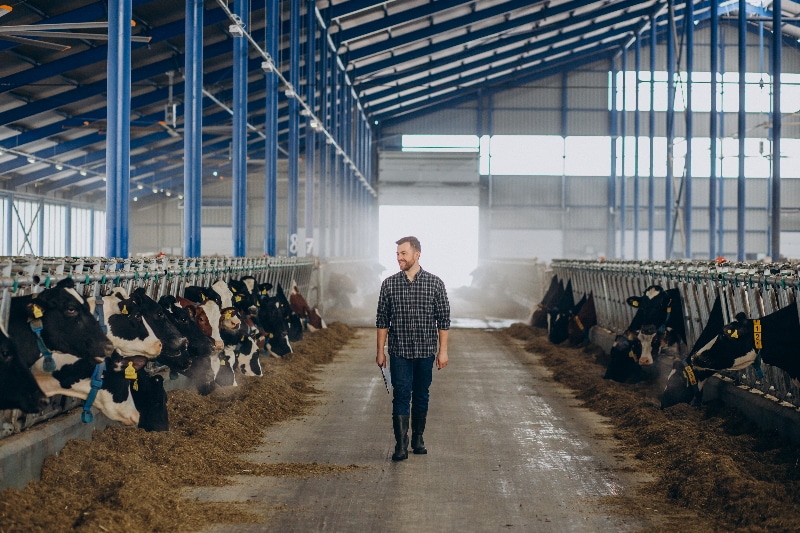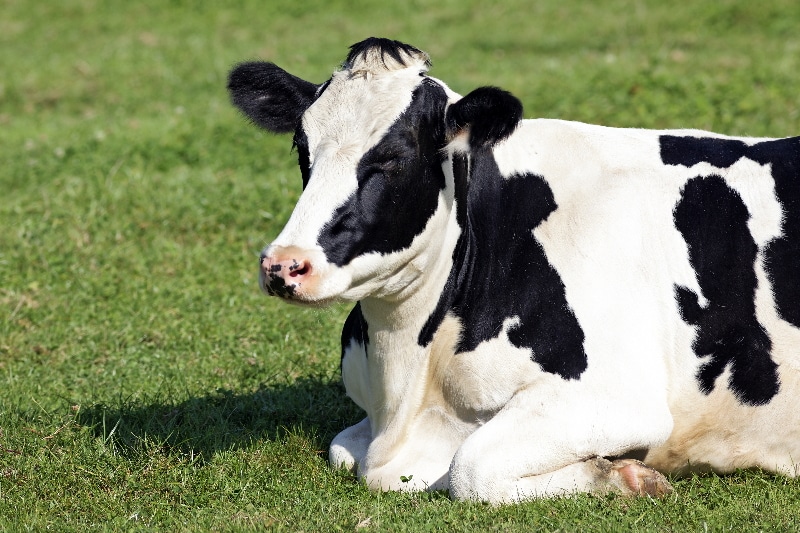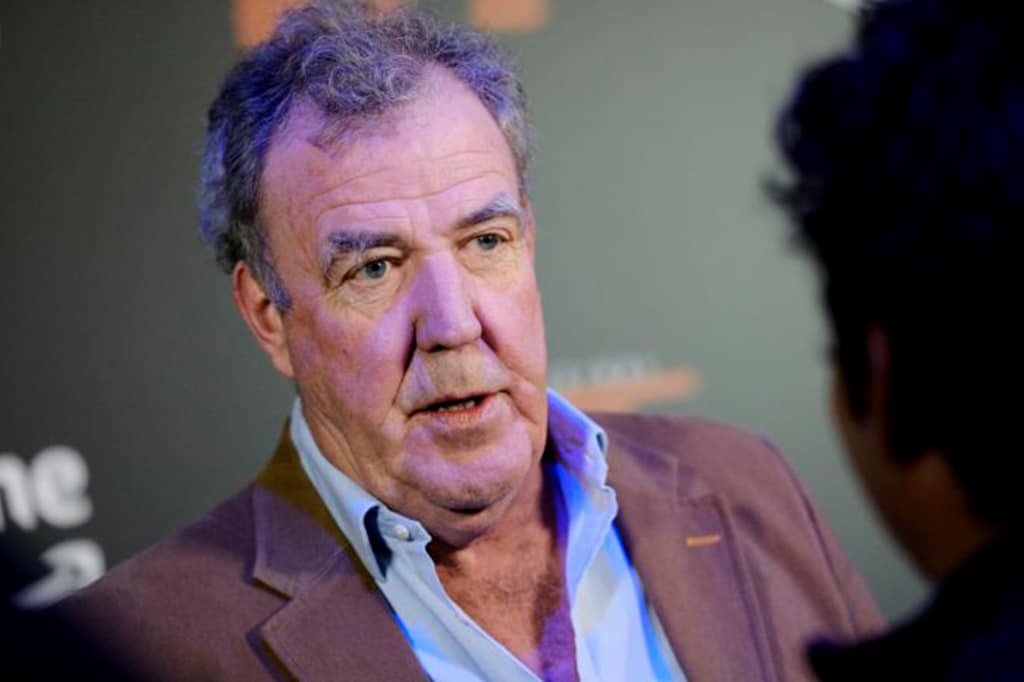The most recent attempt by the agricultural sector to distance itself from the climate catastrophe may be the most odd to date.
Prince Charles was caught a few weeks ago admiring a model of a cow wearing a black mask that resembled something from a futuristic horror film.
The ZELP gadget neutralizes methane by capturing a cow’s burp and oxidizing it, thereby releasing it into the atmosphere as CO2 and water vapor.
It was awarded a £50,000 prize in the inaugural Prince of Wales’ Terra Carta Design Lab competition, which recognizes “innovative design solutions to the climate challenge.”
The fact that these contraptions are being approved and hailed as a feasible solution to the climate catastrophe by the press, the people, and one of the world’s most recognizable royal characters is deeply troubling.
The assumption that animal agriculture-related emissions may be mitigated by a media-friendly quick-fix device as opposed to a radical transformation of our food system trivializes the impending climate catastrophe. We consume way too much meat, which is the underlying source of the crisis, which is being covered up by these bandages.

It is commonly accepted that animal husbandry is responsible for at least 14.5% of the world’s emissions, making it one of the primary contributors of global warming (though one recent study put it as high as 87 percent).
Cows are by far the largest contributors to global warming, partly due to the fact that they generate methane when they burp, fart, and defecate.
Along with carbon dioxide and nitrous oxide, methane is one of the primary greenhouse gases that contribute to global warming. During its first 20 years in the atmosphere, it is eighty times more warming than CO2.
In a report issued by the United Nations in August 2021, reductions in methane emissions must be “rapid, substantial, and sustained.” Since methane has a short half-life, we would notice the benefits of reducing the gas relatively quickly.
Consequently, reducing these emissions is the most effective thing we can do to mitigate global warming rapidly.
Around one-third of the world’s methane is produced by cattle, and the only way to reduce these emissions significantly is to drastically reduce the number of cows raised for meat and dairy. The United Nations last year backed a study encouraging world leaders to abandon animal agriculture in favor of plant-based food systems. In the meantime, a 2018 study from the University of Oxford concluded that a 90 percent reduction in beef consumption in western nations is “necessary” to prevent climatic catastrophe.
Nonetheless, as top royal figures and the general public celebrate cow face masks, the meat and dairy industries are expanding and the planet’s temperature is rising. In 2020, global beef consumption will reach 70,9 million metric tons, up from 65 million in 2010. Despite a mutual commitment to reduce methane emissions by about a third over the next decade, neither the United States nor the European Union have established targets for the agriculture sector.
A report published by the Intergovernmental Panel on Climate Change (IPCC) in April of this year stated that limiting global warming is a “now or never” issue, so the notion that we have time to dither about putting masks on a few cows rather than enacting revolutionary new laws to reduce their numbers is extremely problematic. While the masks appear to reduce approximately 53% of cows’ methane emissions, they do not address the cows’ flatulence and dung emissions. It would also be difficult to disseminate them extensively enough and convince a significant number of farmers to utilize them.
However, even if the masks were able to successfully neutralize all methane produced by cows and if they were magically distributed to every cow in the globe, they would not solve the other environmental problems posed by these animals.
Resource-intensive beef production
Animal agriculture is one of the primary contributors to deforestation, which is one of the most pressing environmental problems we face today. Cattle ranching is responsible for around 80% of deforestation in the Amazon, and beef production occupies over 50% of agricultural land in the United States. In addition to the farms themselves, a vast area of deforested land is used to cultivate soy and other animal feed.
Deforestation is responsible for an enormous amount of carbon accumulation in the atmosphere, which contributes directly to global warming. When trees are cut down to make farmland, the CO2 they had been storing is released, and the fewer trees there are, the less CO2 is taken from the atmosphere. Therefore, methane is not the sole greenhouse gas produced by cow ranching.
Animal welfare in the agricultural industry
Putting aside the environmental flaws of these masks, the notion that they are some sort of stroke of brilliance – when they likely inflict greater misery on beings whose lives are already more miserable than we can imagine – demonstrates how distant humans are from animal suffering. The designers claim that these masks fit “comfortably” and have no effect on the cows’ daily life, yet since cows are sentient beings capable of experiencing distress and suffering just like humans, this is highly unlikely.
Clearly, it is not enough to forcibly impregnate them, steal their calves hours after birth, connect them up to milking machines, and then transport them to a slaughterhouse where their throats are chopped (frequently while they are still alive and kicking). Now, humans have decided to force them to live with a large piece of plastic affixed to their face so that we may continue to bury our heads in the sand about the reality that what we are doing to them is destroying the earth.
These masks are the most recent indication that humanity will seemingly do anything to avoid acknowledging that we must immediately cease eating animals to avert a climate disaster.
While there is little doubt that they will work to lower methane in the cows that wear them, they will likely be insignificant in a world where meat demand is increasing and cow farming is expanding unchecked. Governments must intervene immediately to drastically limit our meat consumption and transition us to a plant-based food system.








